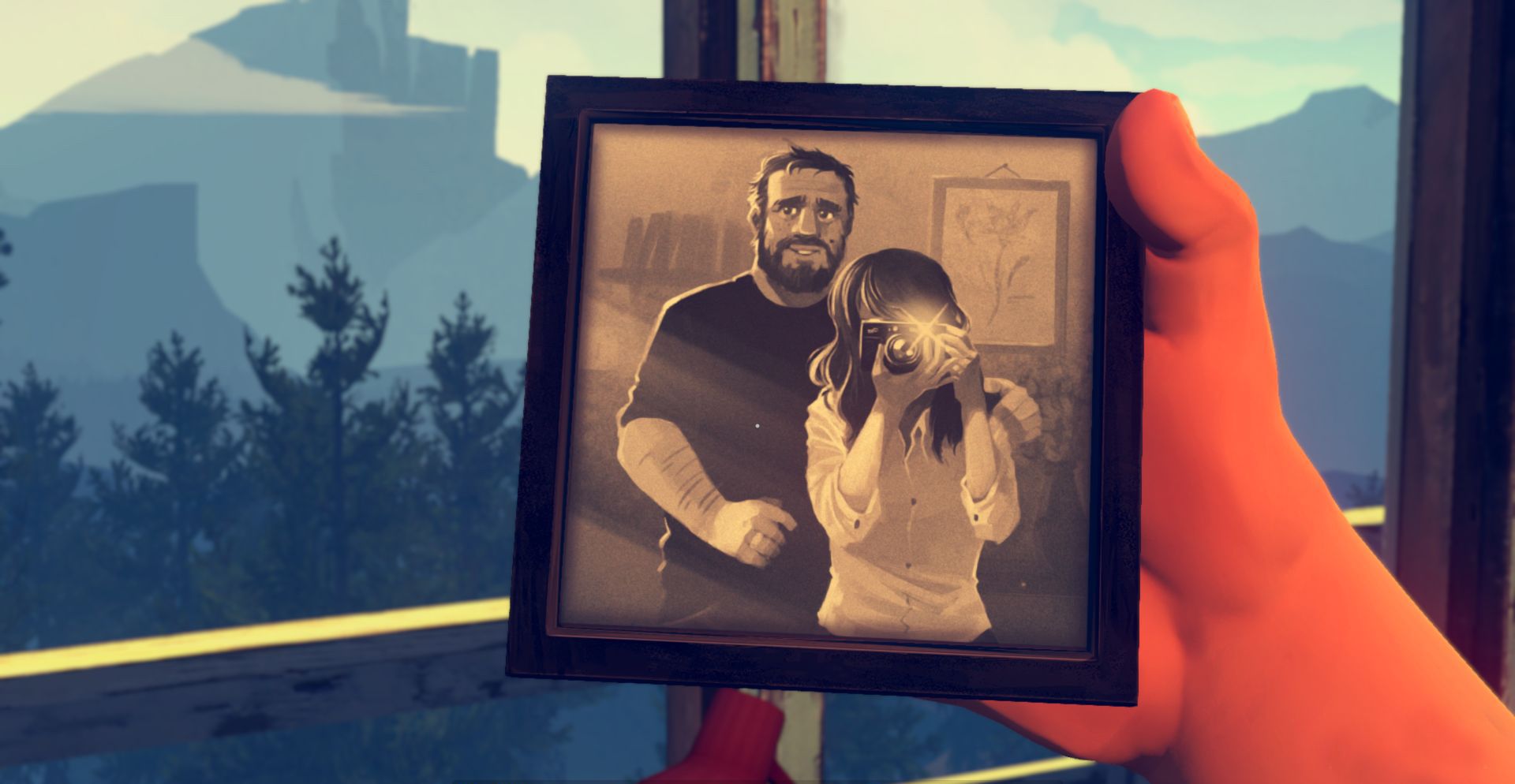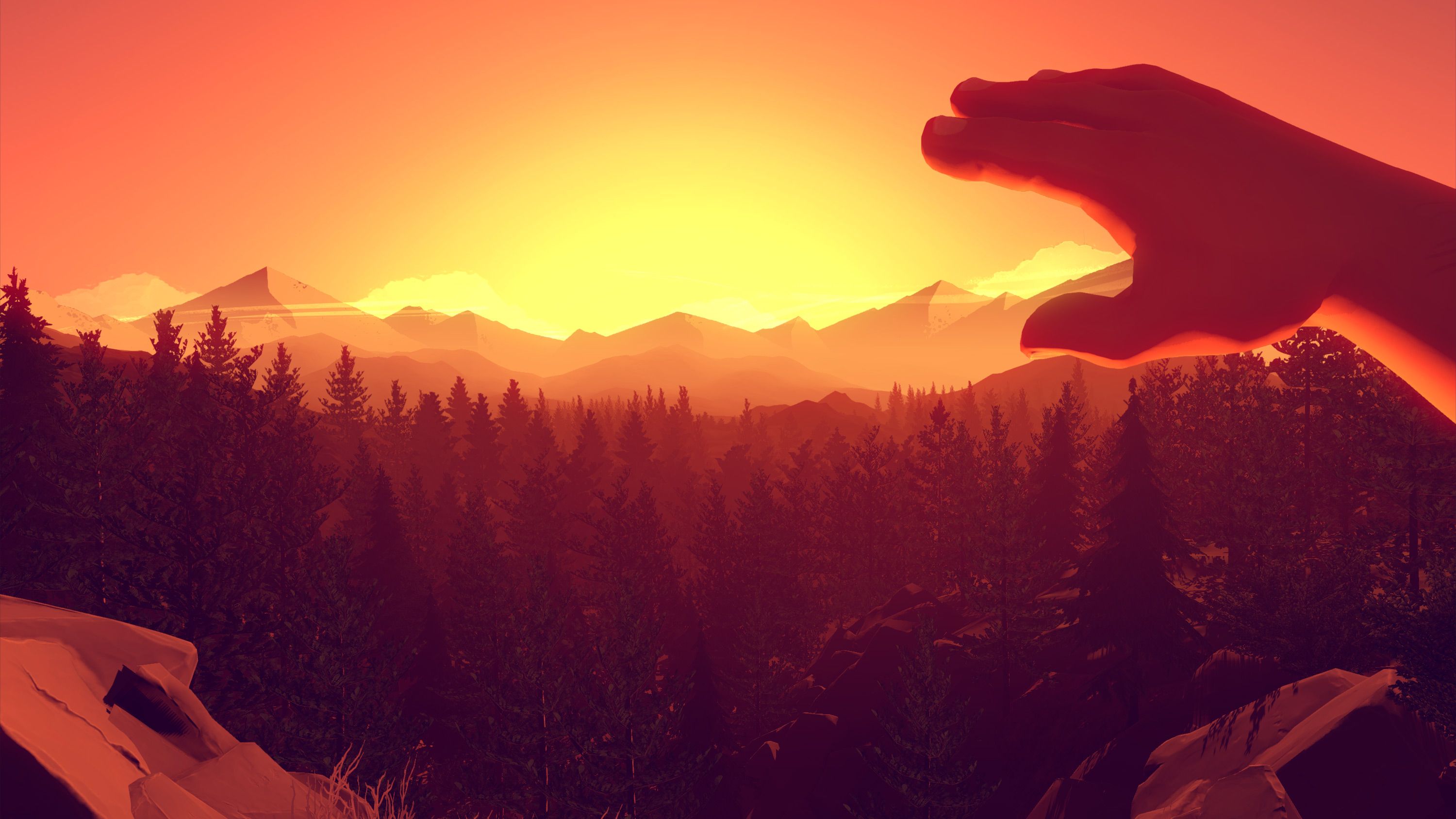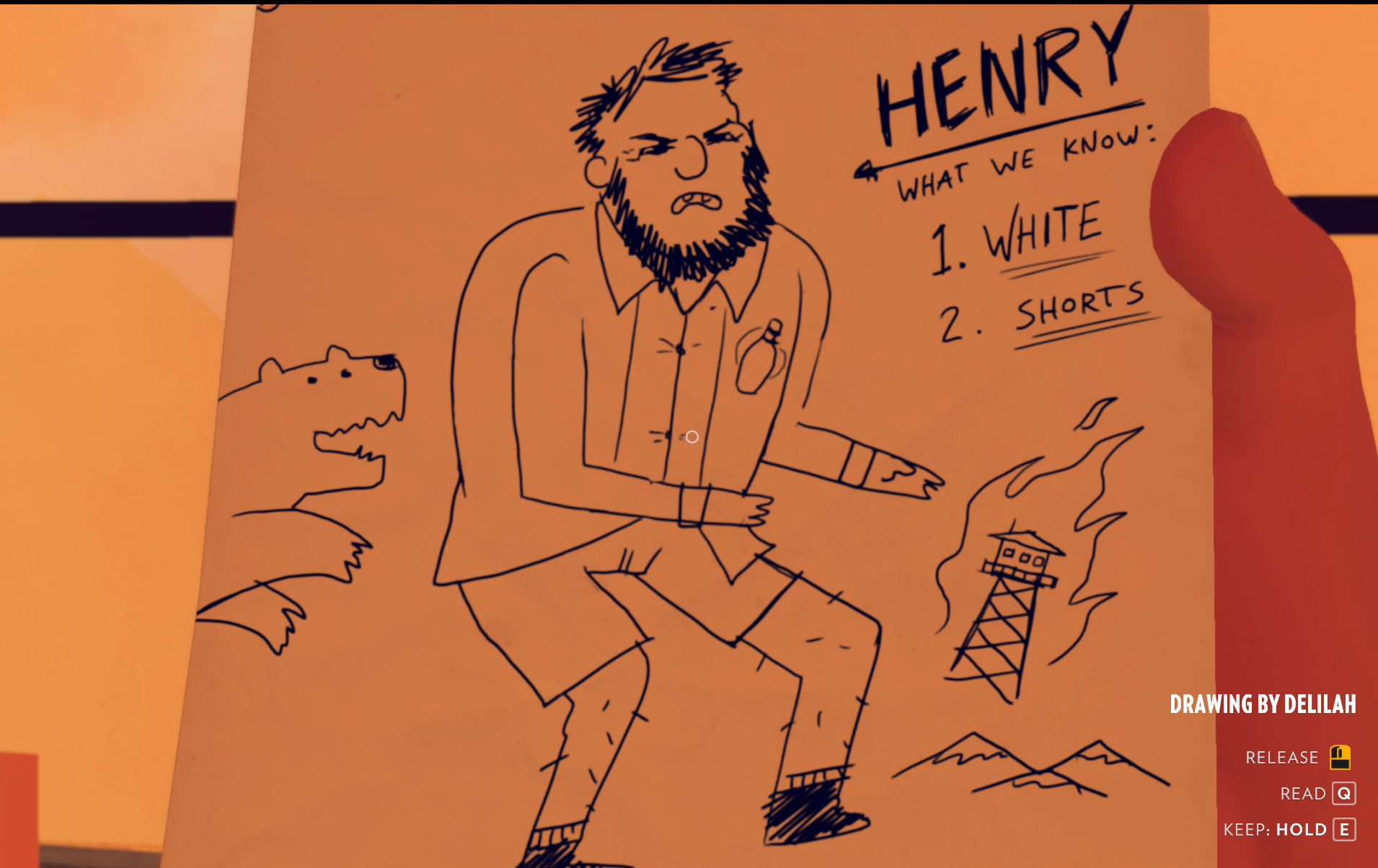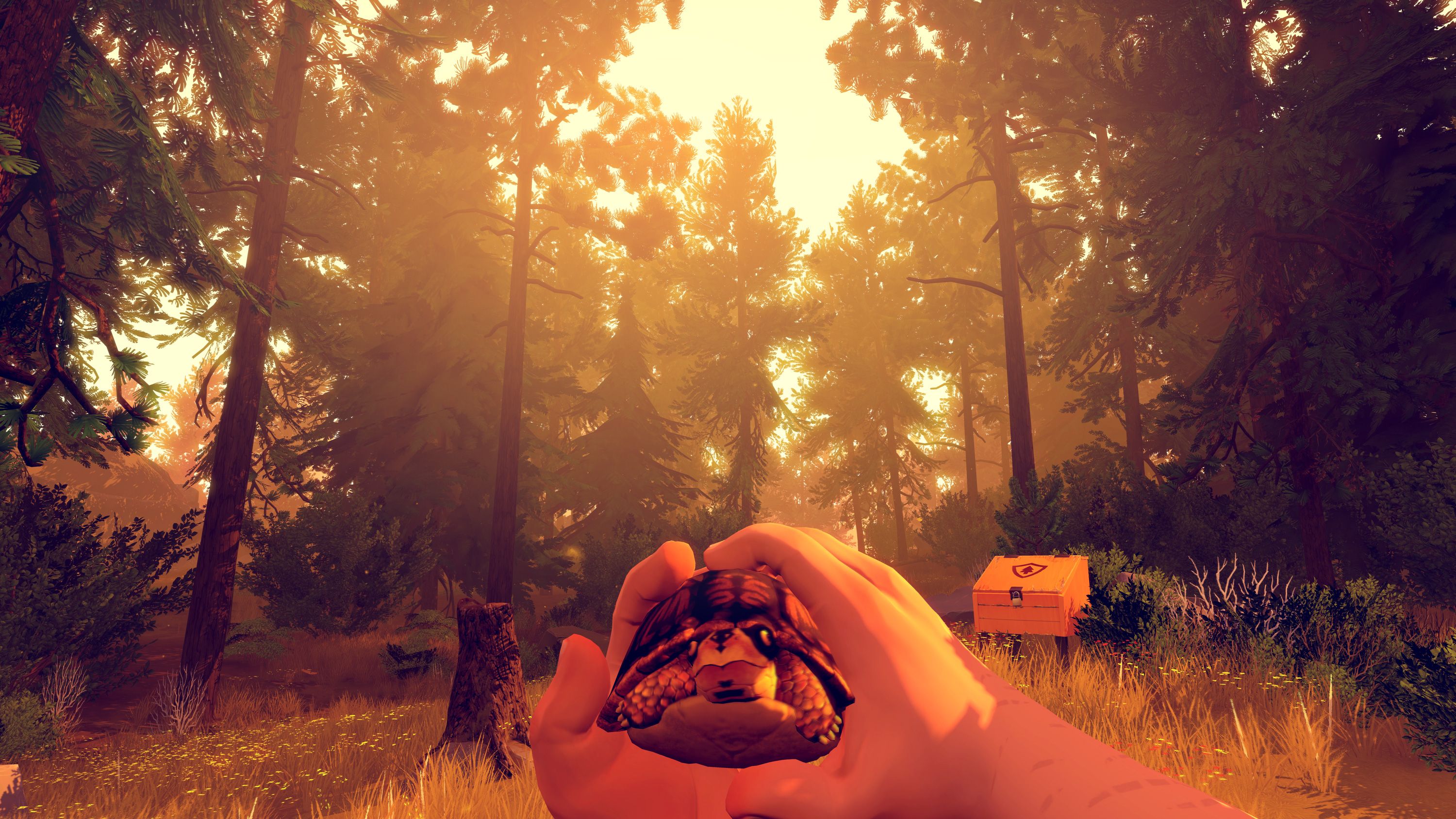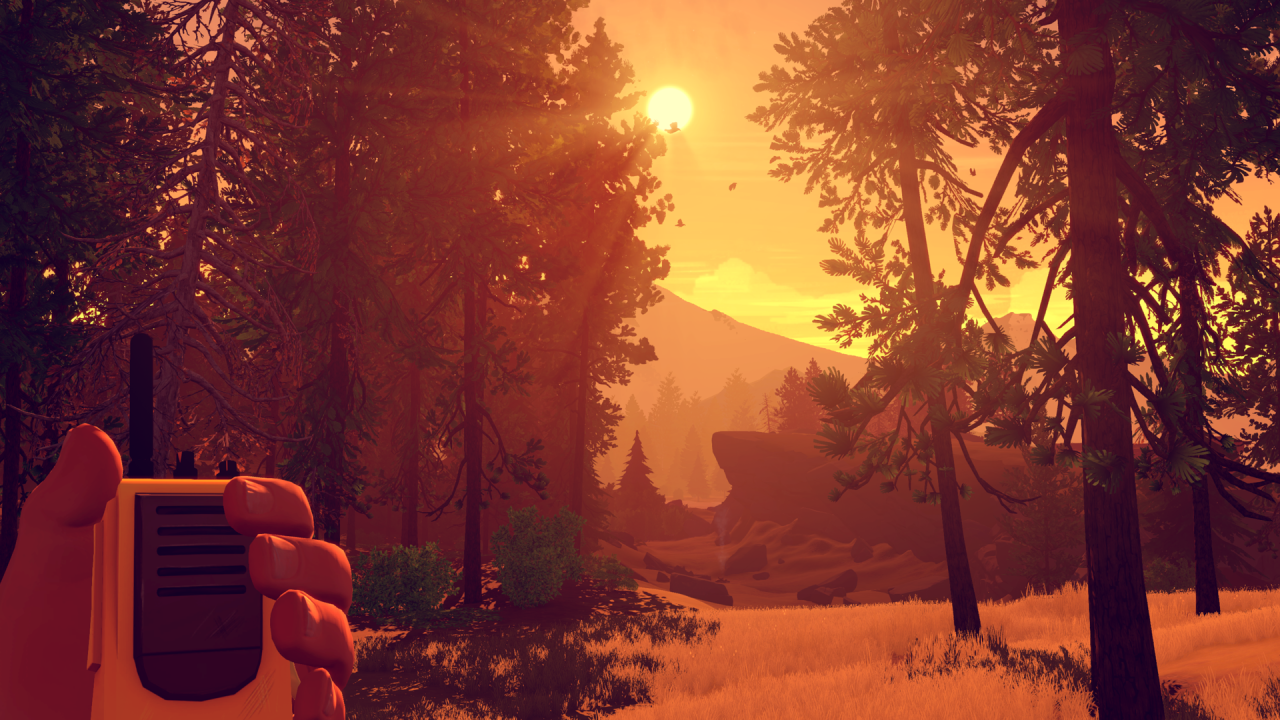[Writer's Note: This editorial will dive in to some heavy spoilers for Campo Santo's PS4/PC release Firewatch, so if you haven't played through the game in full just yet, please steer clear or return here once you've completed the game.]
From my first time seeing it at E3 2014, Firewatch was immediately a game that jumped out at me for a lot of reasons, as the debut title from independent developer Campo Santo. From its lush visuals and art direction, to its pure, nostalgic setting of the 1980s Wyoming wilderness, I already had some clear indications of what I was going to like from the game.
From spending years in the wilderness on camping and hiking trips, Firewatch almost immediately evoked that sense of wonder and peace that I find so much when I've gone hiking, and as such I had some great expectations for as one of my own most anticipated games for the early part of 2016.
What I wasn't expecting was encountering one of the most memorable character relationships that I've seen in a video game in quite some time: almost on par with some that I've come to grow with and admire over the years. Joel and Ellie in The Last of Us, Lee and Clementine in The Walking Dead, the player and GLaDOS in Portal, and several others all come to mind, and in that sense, the dynamic relationship between Firewatch's two main characters, Henry and Delilah, pretty much became the highlight of my experience with the game: even more than the elements that I went in looking forward to the most at first: the setting and visuals.
Set in Wyoming during the late 1980s, the player is put into the role of Henry, a newly-appointed lookout/ranger for the Shoshone National Forest tasked with maintaining and reporting forest fires and other natural events throughout the summer of 1989. From there, players are introduced to his supervisor, the sarcastic and witty Delilah, as he spends the summer monitoring the Shoshone for any potential fire outbreaks: all the while, supernatural elements start messing with Henry's head, and even more so Henry's past and present converge in some pretty shocking and emotional ways throughout the experience.
It's definitely one of the most curious, but enlightening parts of the game that as much as the game focuses on the grandeur and beauty of its Wyoming, Firewatch is a beautiful game about lonely people surrounded by infinite wilderness. Firewatch is filled with beautiful imagery and gorgeous visuals, and yet the biggest enjoyment I got out of the game was less about admiring its picturesque visuals. That admiration instead went toward seeing a relationship form between its two main characters, and especially between characters that don't even see each other once throughout the game (at least physically), as the focus highlights Henry and Delilah's budding communication and openness toward each other.
Much like a long-distance relationship or those predicated on other means of communication (texting, chat rooms, etc.), the entire character development of Henry and Delilah unfolds through radio conversations on their walkie talkies. Combined with the game's first-person perspective, it's to the credit of the game's writers that being able to craft characters that I could so immediately relate to and want to know more about was what made Firewatch such an enjoyable experience, even with it being a particularly brief one (I finished the game in about three hours).
As brief as it was, the experience of Firewatch was less about a comprehensive backstory, or an expansive lore: compared to grander epics like a Metal Gear or The Witcher, Firewatch (and other games of its genre) play more like a short story or a novella, and at the center of it getting to learn and know about Henry and Delilah's past easily made getting to know them as rich and investing as any fantasy world or sci-fi epic I've played before.
That started pretty much from the game's opening sequence where, more than I can think of recently, Firewatch's protagonist Henry was someone that I could easily see myself being, even while I was in the shoes of a existing, established character: shockingly so, in a lot of ways. Where most games typically empower players with strong, noble characters, Henry is instead a character I could way more immediately relate to in my own life: he's kind but shy, noble yet timid, and willing to do a good job, but reluctant and unsure of himself throughout the game. He's a character I could easily see wanting to meet, but he's also made plenty of mistakes on his own part.
As someone that leans a bit more toward the introverted end and having more than a fair share of social anxiety and reluctance towards being judged or how I'm viewed by other people, Henry was someone I could easily relate to. Where most other games made me feel powerful or let me do so many unique and superpowered feats, Firewatch, oddly enough, probably shares a bit more in common with survival horror games in making the player feel vulnerable and afraid.
I have a pretty hard time opening up to people for various reasons emotionally, be it just a general sense of social anxiety, shyness, and for personal reasons I don't really feel the need to get into here. But with the twists and turns that Firewatch provides, my conversations between Henry and Delilah were able to flow and go to places that I wasn't expecting, or found really beautiful and engaging. Where the beginning of the game has Delilah being a bit sarcastic and obnoxious at points, later on their development changes - gradually into friendship, companionship, and even hints at some points toward romance.
As much as Firewatch starts the player off on a journey of being a disheveled, overwhelmed lookout in the blistering summer of Wyoming, by the games end it really took my surprise by instead being about vulnerability: about a willingness to open up and share a connection with someone emotionally, whether it be as friends, as lovers, or as anything else in-between. Of course, that's the irony of playing a game that puts players into an isolated, lonely area, and instead made me more willing than ever to go out and seek the unknown. Firewatch made that connection pretty thrilling, to say the least.
In this case though, Firewatch made me feel vulnerable not in the sense of being killed by a terrible creature or unknown force, but emotionally vulnerable. I was feeling the sense of getting to know someone on the other end of a line as much as Henry was, and that was the experience that captivated me through Firewatch in ways I never really had before in a game. As a player that mostly seeks out solitary, single-player experiences most of the time, the fact that Firewatch not only gave me a connection out in the vast wilderness but made me care about that connection was certainly a powerful experience.
In my playthrough of the game, that connection often felt like it toed the line pretty much between Henry and Delilah being sarcastic, wise-cracking buddies and slowly developing into something more. As Henry made a joke and Delilah retorted back with a funny (but slightly flirty) comeback, it all too often reminded me of my own life: past friendships, past relationships, past flirtations and loves that never happened. For me, Firewatch tackled the complexities of love in ways I hadn't really seen games address before, especially in the field of unrequited love, or love that isn't quite meant to happen.
That feeling escalated towards the end of the game when you eventually make your way toward Delilah's watchtower before being evacuated by the Shoshone rescue team. Where the ending of Firewatch has been criticized a bit in the weeks since its release on the points that it feels unfulfilling and empty compared to the game's build-up - a point I can agree with on most parts - I do "get" the implications that the developers at Campo Santo were going for, and found it pretty powerful.
Where I probably would have expected Henry and Delilah to meet at the end of the game and lead their lives from then on - maybe continue their friendship in-person or begin anew in a relationship - the end of the game instead finds Henry in Delilah's watchtower alone, with her having vacated the area prior. It's a pretty bittersweet moment: having gotten to know this person over the course of a 2-3 hour adventure and find them gone surely would have evoked a sense of anger that I didn't get the proper resolution I might have been looking forward to in the game.
However, the ending instead made me miss Delilah. It made me reflect on similar circumstances in my own life: friends that have come and gone into my own life, relationships that didn't work out, or love that wasn't meant to be, for various reasons or circumstances.
To me, that was the power of Firewatch and the effectiveness of its story. For all the excitement and anticipation I had in exploring the game for (at the time) superficial reasons - the lush visuals and pedigree of its development team - I came away from the game with something I wouldn't have expected. Where usually I go to games for escapism and a sense of empowerment, Firewatch instead game me isolation and introspection. Even though I got lost in the woods for a few hours with Firewatch, I never would have expected what I gained by coming out of it: a chance to relate with another human, even in the most isolating circumstances possible.

